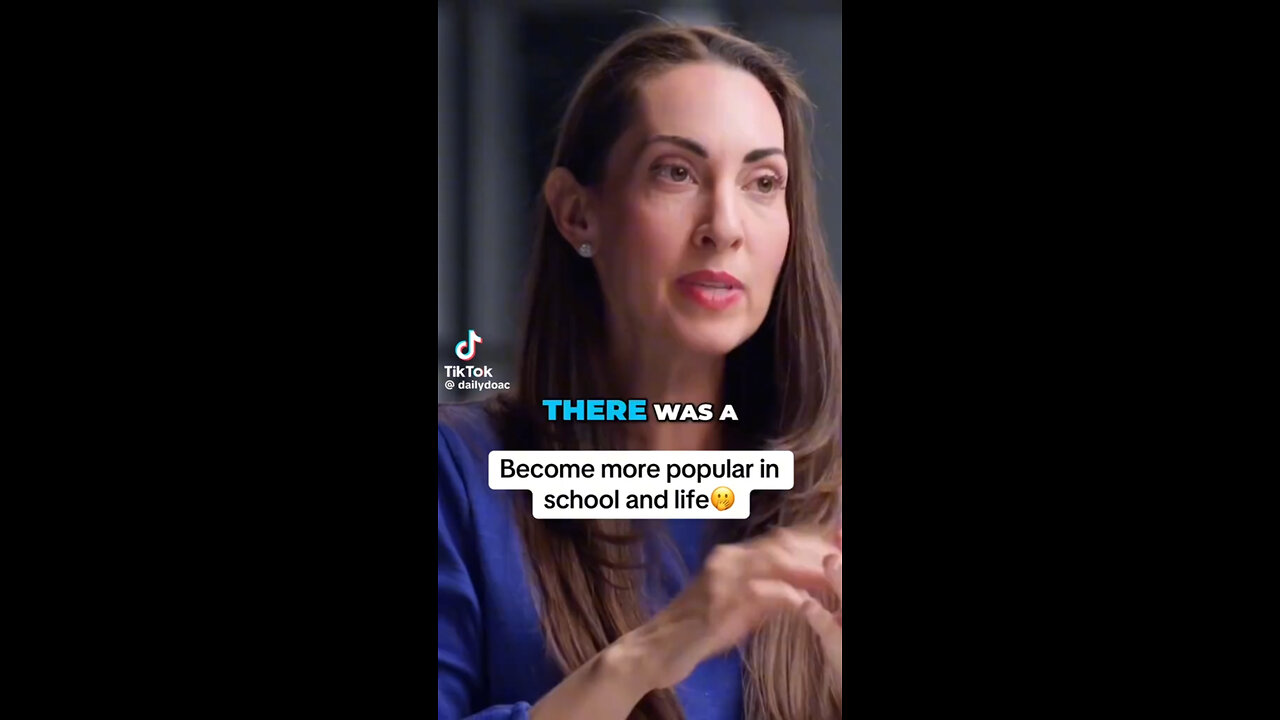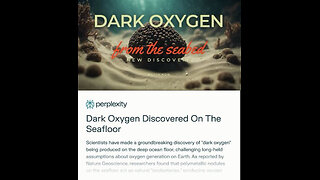Premium Only Content

The Science of Popularity: How Liking Others Unlocks Connection and Influence
What makes certain individuals universally popular? For decades, psychologists, sociologists, and researchers have pondered this question, seeking to unravel the traits that endear some people to nearly everyone they meet. Is it physical attractiveness, humor, intelligence, or athleticism? While these traits might play a role, a recent study has uncovered a surprising yet profoundly simple answer: the most popular individuals are those who like others the most.
This article delves into the nuances of this discovery, exploring the psychological, social, and practical implications of this research. By understanding and applying these insights, anyone can cultivate deeper connections, foster trust, and unlock their own likability.
I. The Study: Redefining Popularity
A groundbreaking study examined thousands of high school students across diverse schools and demographics, seeking patterns among the most popular individuals. Researchers hypothesized that traditional traits—such as attractiveness, athleticism, or charisma—might explain their social success. However, their findings told a different story:
• The Core Discovery: The most popular students weren’t necessarily the most attractive, athletic, or academically gifted. Instead, they had one common trait: they liked the most people.
• Micro Moments of Liking: Popular individuals were found to engage in countless small, positive interactions throughout their day. Whether greeting classmates by name, offering compliments, or showing interest in others, they created ripples of goodwill that made them universally likable.
II. The Psychology Behind Liking Others
1. Reciprocal Liking: A Universal Principle
One of the most robust findings in social psychology is the principle of reciprocal liking: we tend to like people who like us. When popular individuals show warmth and kindness to others, it creates a natural inclination for others to reciprocate these feelings.
2. The Emotional Contagion Effect
Human emotions are highly contagious. A smile, a warm greeting, or a moment of genuine attention triggers positive feelings in others. This emotional contagion builds rapport, making individuals who express positivity more magnetic and approachable.
3. The Neurobiology of Connection
• Mirror Neurons: Our brains contain mirror neurons, which fire when we observe someone else’s actions or emotions. These neurons allow us to “mirror” the feelings of others, creating empathy and emotional resonance.
• Oxytocin Release: Acts of kindness and connection stimulate the release of oxytocin, often referred to as the “bonding hormone.” This creates a sense of trust and strengthens interpersonal bonds.
III. Liking as a Social Strategy
1. The Power of Being the “First Liker”
Popular individuals don’t wait for others to show interest or kindness—they take the initiative. By being the first to like, they:
• Set the Tone: Their positivity establishes a welcoming environment for others.
• Break Social Barriers: Initiating warmth signals openness and reduces social anxiety in those around them.
2. Micro Moments: Building Connection in Seconds
• Names Matter: Remembering and using someone’s name in conversation signals respect and recognition, which fosters goodwill.
• Genuine Compliments: Offering specific, authentic compliments reinforces positive interactions.
• Active Listening: Showing genuine interest in others’ thoughts and experiences deepens connection and builds trust.
IV. The Broader Implications of Liking Others
1. Popularity Beyond High School
While the study focused on high school students, the findings extend far beyond adolescence. In workplaces, communities, and even global networks, the same principles apply:
• Leaders Who Like: Managers and leaders who express interest and warmth toward their teams foster collaboration, loyalty, and innovation.
• Influence and Persuasion: Being likable enhances your ability to influence others, as people are more receptive to those they perceive as kind and supportive.
2. Social Harmony and Inclusion
Liking others promotes inclusivity by bridging divides between social groups. Popular individuals often act as social connectors, bringing together people from diverse backgrounds and fostering a sense of community.
V. How Liking Others Improves Personal Well-Being
1. Emotional Benefits
• Increased Happiness: Expressing kindness and liking others triggers the release of endorphins, improving mood and reducing stress.
• Resilience: Positive social interactions build emotional resilience, helping individuals navigate challenges more effectively.
2. Physical Health
Research shows that strong social connections contribute to better physical health by:
• Lowering stress-related hormones like cortisol.
• Strengthening the immune system.
• Reducing the risk of chronic diseases linked to social isolation.
3. Psychological Growth
Liking others encourages self-awareness and empathy, fostering personal growth and emotional intelligence.
VI. Practical Strategies to Cultivate Liking
1. Mastering Micro Moments of Liking
• Practice Gratitude: Begin your day by thinking of specific qualities you appreciate in those around you.
• Be Present: Engage fully in conversations, making eye contact and avoiding distractions.
• Offer Random Acts of Kindness: Small gestures, like holding the door or giving a compliment, create ripples of positivity.
2. Expand Your Circle of Kindness
• Break Out of Cliques: Seek opportunities to interact with people outside your usual social group.
• Be Inclusive: Show warmth and interest in individuals who might otherwise be overlooked.
3. Develop a Positive Mindset
• Assume Good Intentions: Approach others with the belief that they have good intentions, which fosters a more positive outlook.
• Focus on Strengths: Instead of dwelling on flaws, look for and acknowledge the strengths in those around you.
VII. The Transformative Potential of Liking
1. Rewriting Social Norms
If more individuals adopt the practice of liking others, the ripple effects could transform social environments:
• Reduced Bullying and Exclusion: By modeling inclusive behavior, popular individuals can inspire others to embrace kindness.
• Stronger Communities: Small acts of liking create a foundation for trust, cooperation, and shared purpose.
2. A Paradigm Shift in Popularity
This study challenges the notion that popularity is about external traits or superficial qualities. Instead, it highlights the power of intentional kindness and connection—a skill that is accessible to everyone.
VIII. Conclusion: A Simple Yet Profound Truth
The study’s findings reveal a timeless truth: popularity is not about being admired from a distance but about creating meaningful connections through intentional acts of liking. This insight is both empowering and transformative, reminding us that we have the power to shape our social lives and influence others simply by choosing to like more people.
By cultivating micro moments of liking, embracing inclusivity, and adopting a mindset of kindness, we not only enhance our own likability but also contribute to a more compassionate and connected world. Popularity, it turns out, isn’t a mysterious gift bestowed on the lucky few—it’s a practice that anyone can master. And in mastering it, we unlock the profound potential of human connection.
-
 3:23
3:23
FragmentsOfTruth
2 days agoDark Oxygen & Electric Rocks: The Ocean Just Changed Science Forever
1991 -
 LIVE
LIVE
The Charlie Kirk Show
1 hour agoTariffs and Trade Wars + Peace in Ukraine? + SOTU Preview | Carney, Schweizer | 3.4.25
5,042 watching -
 56:23
56:23
The Dan Bongino Show
4 hours agoThe Momentum Keeps Shifting (Ep. 2435) - 03/04/2025
468K728 -
 DVR
DVR
Benny Johnson
2 hours ago🚨Trump Attorney General Drops a New ‘TRUCKLOAD’ of Epstein Evidence | Kash FIRES FBI Head, Cover-Up
40.4K73 -
 59:30
59:30
The Rubin Report
2 hours agoMarco Rubio Destroys CNN Host’s Narrative with Facts in Only 1 Minute
36.2K53 -
 2:04:21
2:04:21
Steven Crowder
4 hours agoWhat Are Pam Bondi's Real Motivations? What It Means For The Epstein Files
328K222 -
 2:03:49
2:03:49
LFA TV
17 hours agoTARIFFS HAVE BEGUN! | LIVE FROM AMERICA 3.4.25 11AM
36.9K16 -
 LIVE
LIVE
TheAlecLaceShow
3 hours agoGuest: George Papadopoulos | No Military Aid to Ukraine | Address to Congress | The Alec Lace Show
166 watching -
 33:54
33:54
Grant Stinchfield
2 hours ago $0.56 earnedBird Flu is Mutating & Now Measles! Big Pharma Wants you to Freak Out... Don't!
2.73K5 -
 LIVE
LIVE
The Dana Show with Dana Loesch
1 hour agoTRUMP SUSPENDS UKRAINE AID | The Dana Show LIVE On Rumble!
547 watching